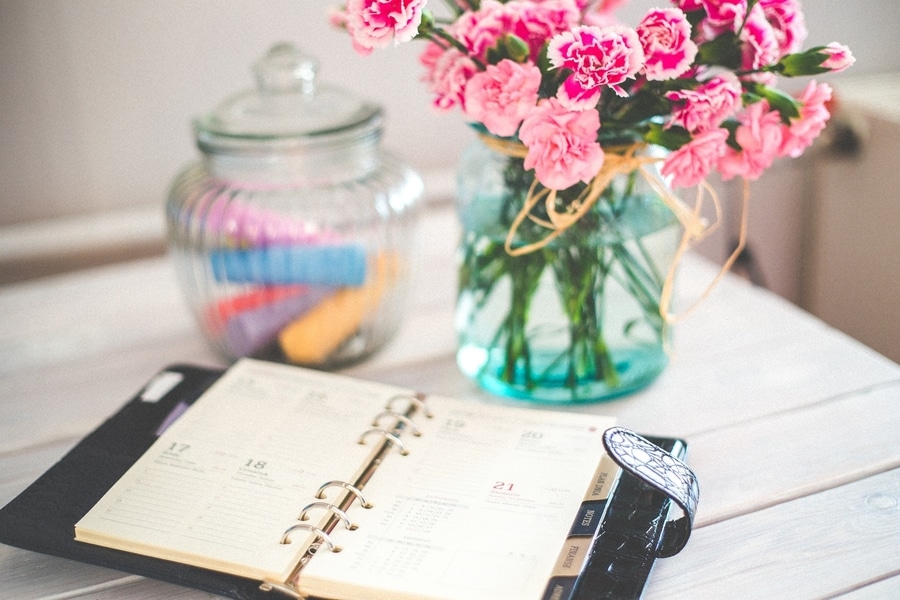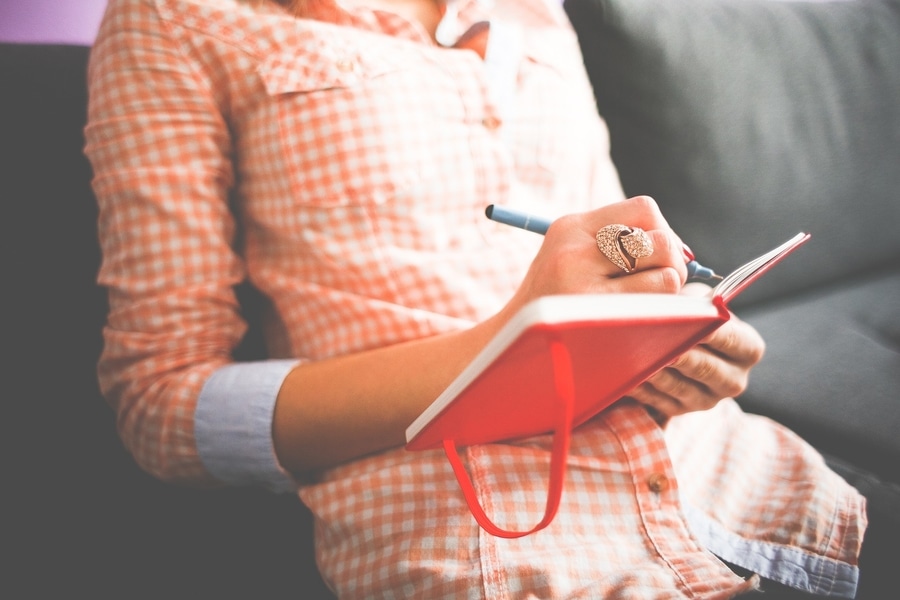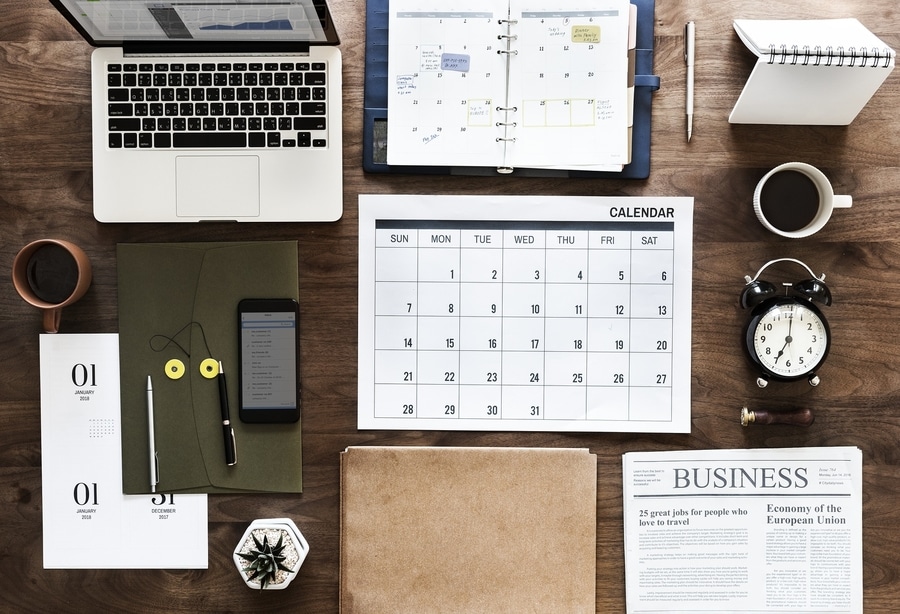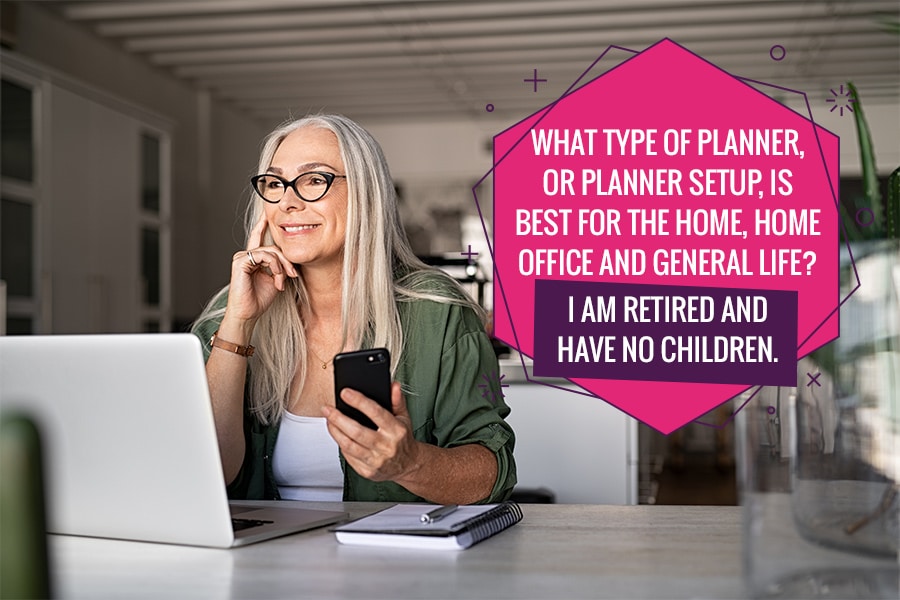This is a great question. Planners aren’t just for the office. Most of us have a lot of things to juggle. Even if we don’t have children, and don’t work anymore, there are tons of things that we need to manage. Hobbies, activities, medical appointments, social occasions, and more. So what type of planner setup is best for you?
It actually depends on how you organize best. Everyone is unique. Here’s what you need to consider.
First: Paper or Digital?

Some people just retain information better when they write it down, and the feel of a tangible planner makes it easier for them to focus. If you respond better to a paper or a digital planner, you’ll quickly know.
The benefits of a paper planner are as follows:
- Easy. It’s often easier to just whip out a pen rather than try to type something out on a tablet.
- Physical. Some people learn better through physical writing, or find that physical writing is easier to read.
- Fun. You can design a paper planner however you want, including creating a “bullet journal.”
The benefits of a digital planner are as follows:
- Cheap. Most digital planners can be downloaded for free.
- Flexible. You can easily add things to digital planners, including photos and videos of things you might need to know.
- Advanced. Digital planners can set off reminders for you, so you never forget anything.
Which one sounds right for you? Sometimes you may even want to use both. A paper planner can be used for more fluid things like journaling, while digital planners can be used for appointments that absolutely cannot be missed.
Second: Chronological or Journal-Based?

Planners come in two major types. Some are chronological: you have daily, weekly, and monthly goals. Others are journals: they let you track to do lists, goals, and personal thoughts. Some are also hybrid planners: they have both sections. But if you aren’t going to be doing a lot of both things, that might just be a waste of space.
Consider what you’re actually keeping your planner for. Is it mostly for journaling? Is it to track the things that you need to do every day? Or do you need a planner for your day-to-day events? If you’ve never planned before, you may not know. You may need to think about your primary goals instead.
Even the way that planners track events can vary. Some have grocery style lists to check off, while others have little summaries of your day. Consider which option is more natural to you, and take a look at different planner options.
For a digital planner, you can often switch seamlessly between different types of planning. But there are still different types of apps, too. Some apps are focused around delivering you unique experiences every day (such as a quote every day), while others are targeted towards letting you know what you need to get done.
Third: What’s Your Planning Routine?

A planner isn’t going to be helpful if you’re not going to use it. What’s your planning routine? Set a schedule for when you plan. Some people like to take some time at the beginning of the day to schedule things, and reflect on everything at the end of the day to make sure there isn’t anything that they missed. By establishing healthy planning habits, you can make sure that nothing is missed.
If you find your planner frequently lagging behind, you might want to set an alarm on your phone or incorporate it with a different habit, such as your morning coffee. Take note of what works and what doesn’t work for you. You may find that you need to adjust your planning strategies several times before you determine the right planning methods for you.
Planning is important for everyone. It can be difficult to keep track of even simple tasks if you have no way of managing them. Through developing better planning habits, you’ll be able to take charge of your life, and you’ll also find yourself with more free time. Experimenting with different types of planner and organizational strategy can help you find joy in your planning activities.

